Industry, government, and academia cooperate for win-win situation in coastal development
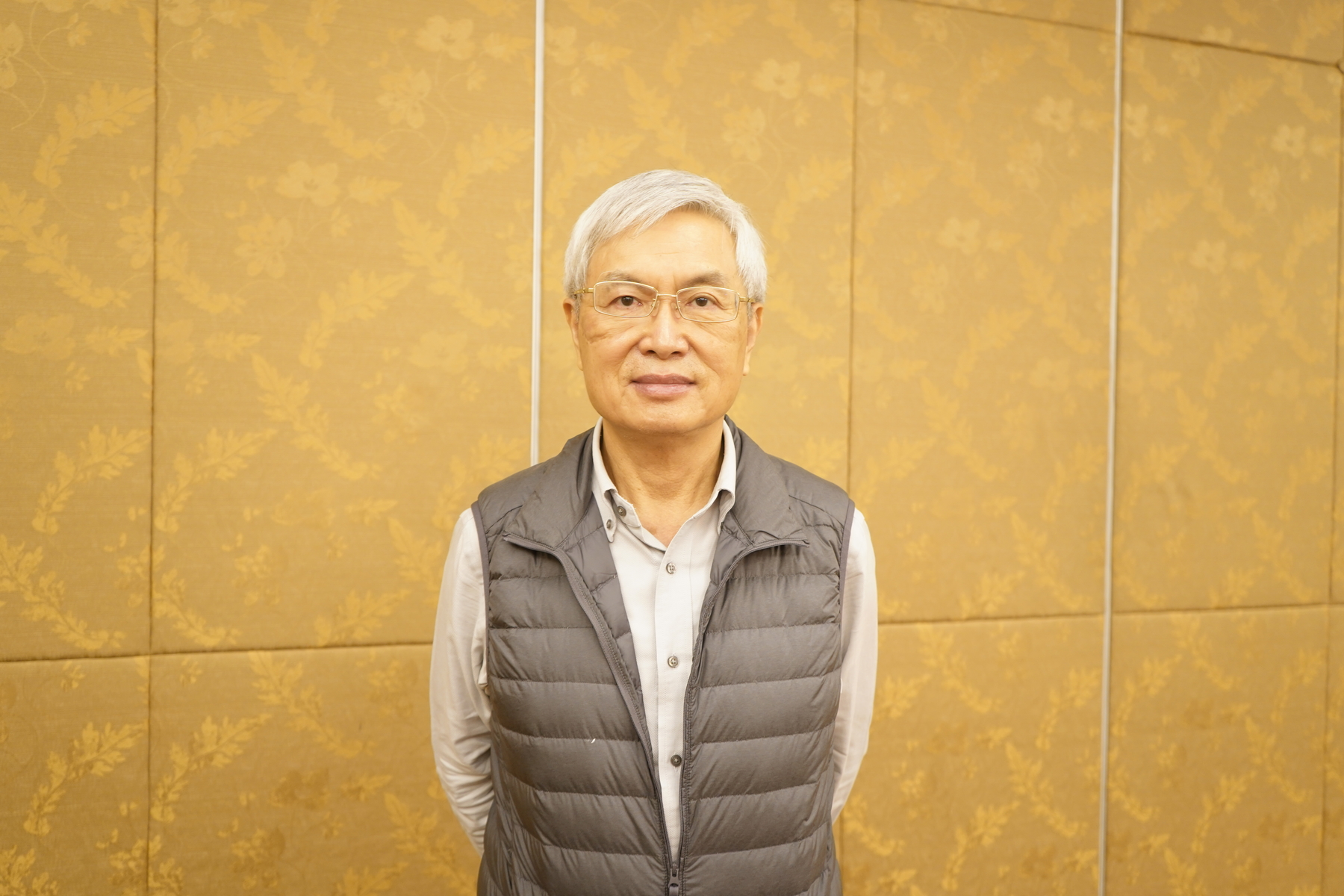
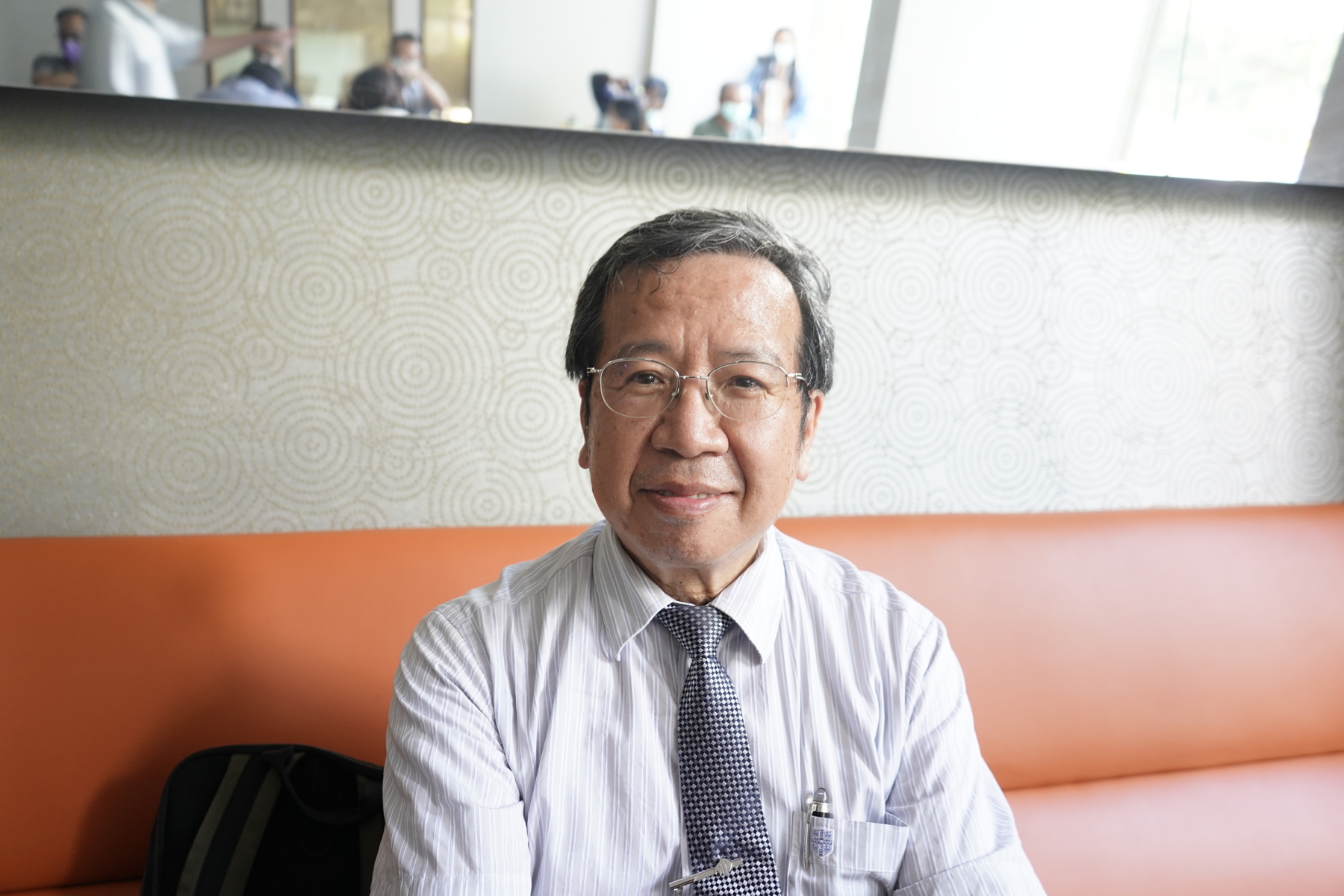
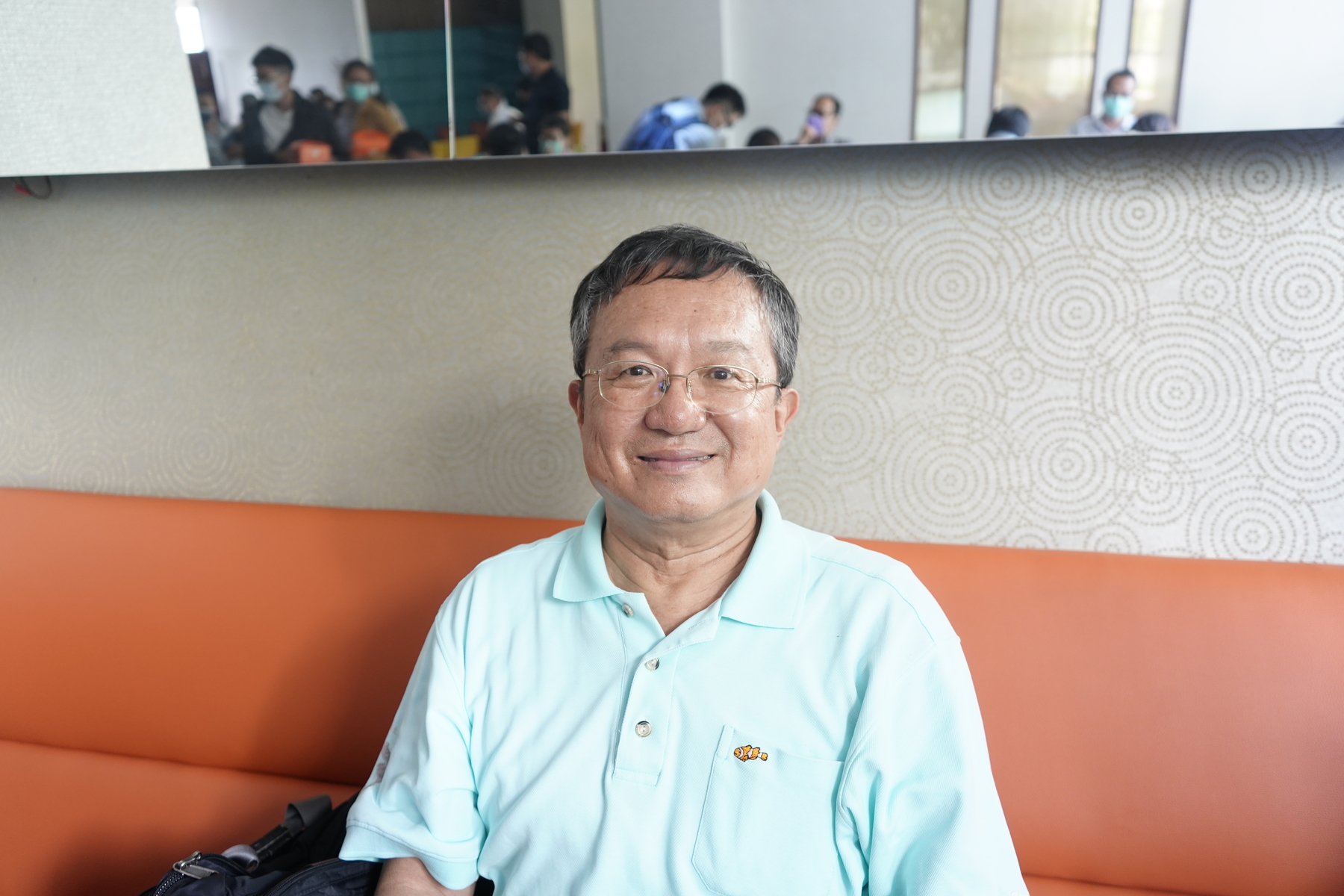
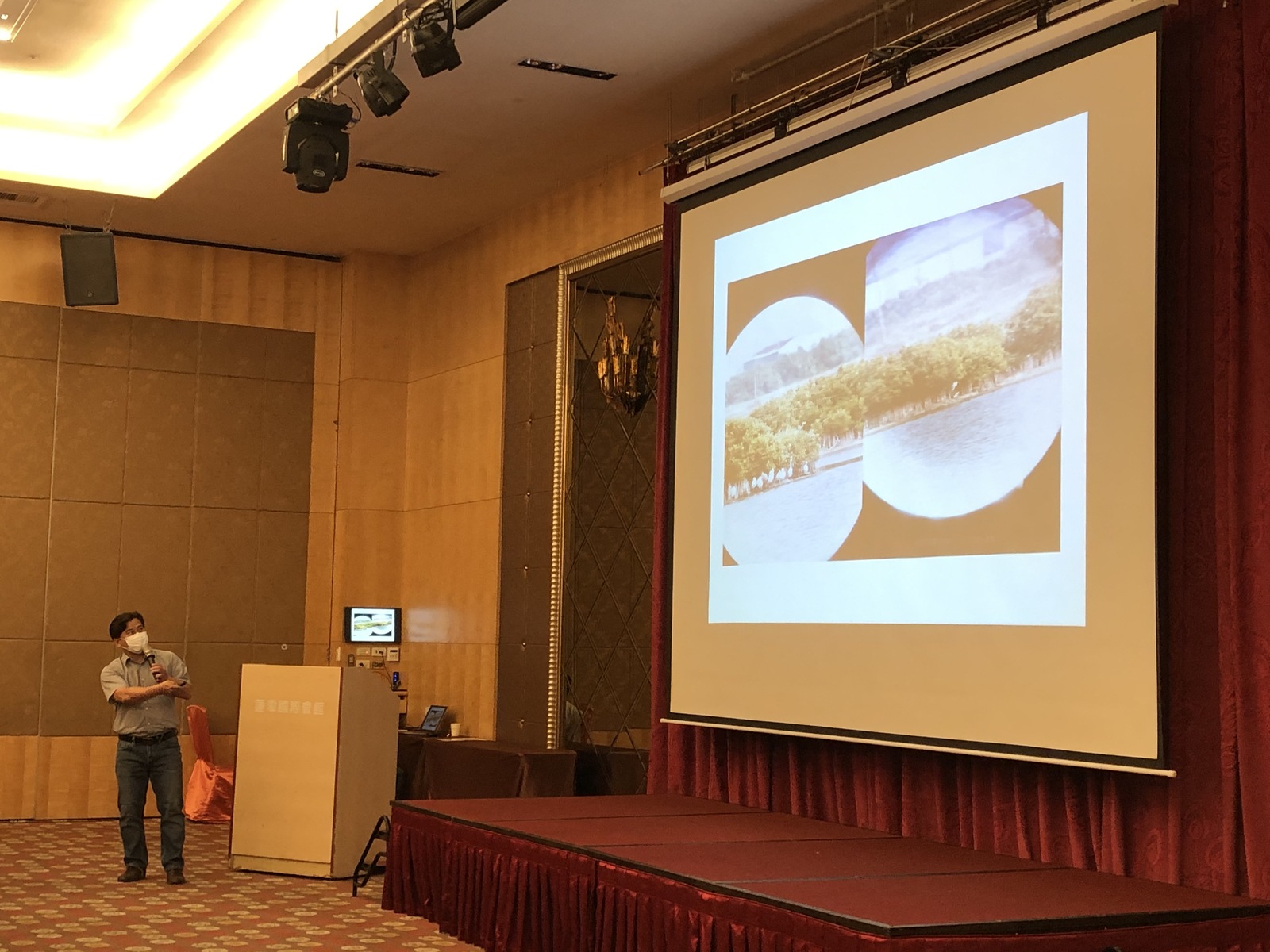
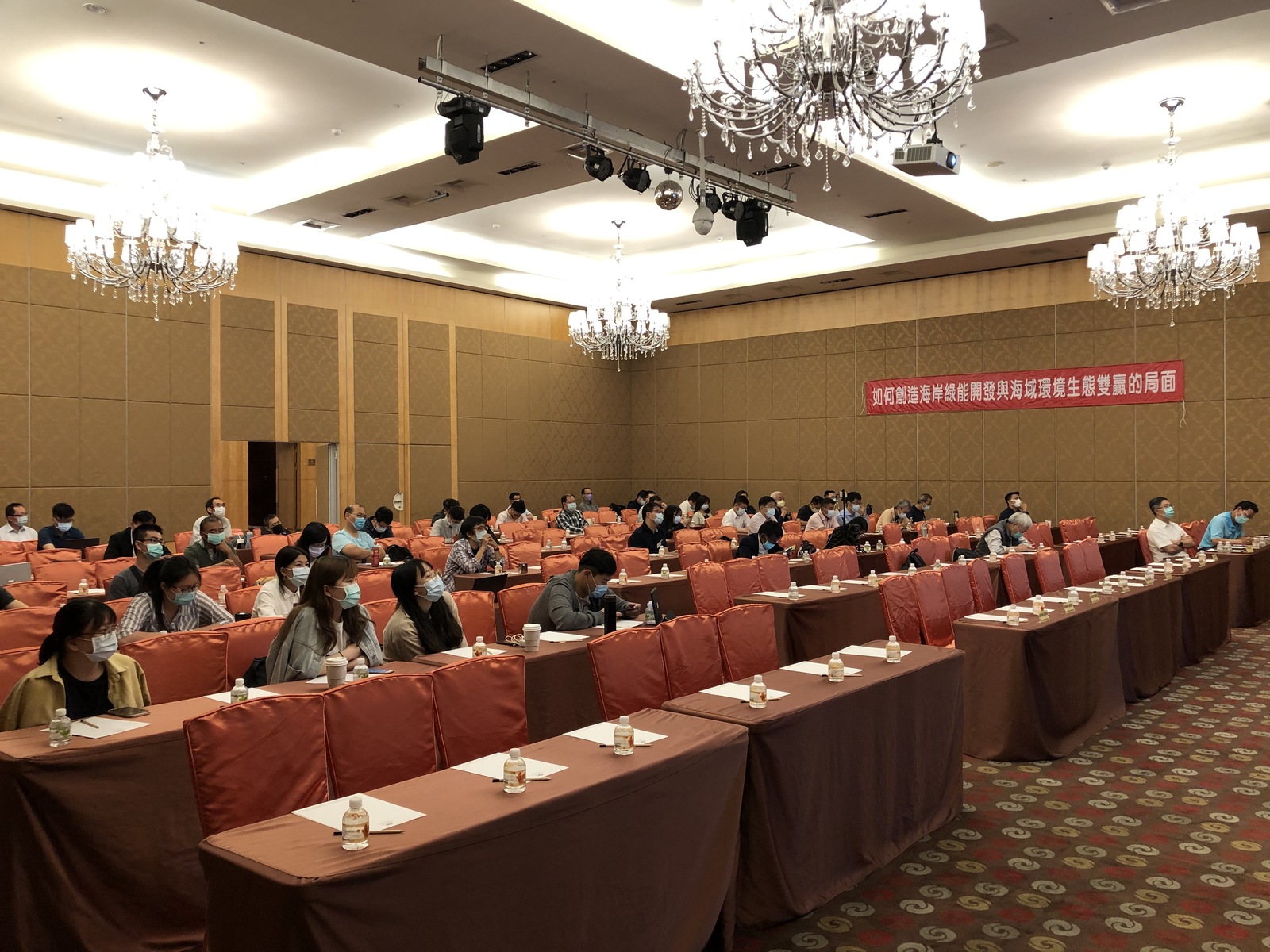
2021-06-07
(Report by student journalist) Since 2019, the Taiwanese government has been actively promoting offshore wind power generation and renewable energy sources. It is planning to construct a large offshore wind power farm along the western coast of Taiwan. Can this be a cause for concern? NSYSU College of Marine Sciences, Marine Science and Technology Center, and Guorui Green Energy organized the Forum on Marine Environment and Win-Win Strategy for Development, gathering experts and scholars to discuss how to create a win-win situation for the marine ecosystem and its economic development.
The first session of the Forum was a lecture by Associate Professor Yu-Cheng Wang of the Department of Law, National Cheng Kung University (NCKU), who discussed the conflict between Taiwan’s coastal development policy and environmental conservation regulations. Professor Wang focused on the development of green energy and emphasized that community participation is an important chain link. And he gave an example from his course to point out that only with the support and cooperation of local residents, a wind or on-water solar power plant can then be established.
Regarding coastal management and marine spatial planning, Emeritus Chair Professor of NSYSU Wen-Yan Chiau said that nowadays, the Coastal Zone Management Act only concerns the offshore area of 3 nautical miles towards the sea and that it does not regulate the area further to 12 nautical miles. At present, if we want to formulate a marine zone planning law, we can draw from the experience of Latvia, a country with the most advanced marine spatial planning law among the United Nations members, he said. These efforts still need a comprehensive planning by the Ocean Affairs Council and the cooperation permission of the Ministry of the Interior for the improvement of Taiwan's coastal development. Professor Chiau said that Article 3 of the Enforcement Rules of Coastal Zone Management Act points out that central competent authorities when delimiting the range of the marine coastal areas, shall take into consideration the interactions at the boundary of the land and the sea. He said that he hopes that more talents with a good understanding of both sea and land joining this project and cooperation between the College of Marine Sciences of NSYSU and NCKU’s Department of Urban Planning will contribute to a more comprehensive coastal spatial planning.
When introducing the project of the on-water solar power plant and the current situation of the ecological environment, Chairman of Dr. Renewable Energy Material Tech Corporation, Mr. Tai-Ching Liu, mentioned that in 2015, on-water solar farms officially started operating in Taoyuan ponds and A-kung-tien Reservoir by Water Resources Agency in Kaohsiung, which initially caused worries about the costs being higher than the revenues and a smaller efficiency than that of on-land farms. However, the farm turned out to be easy to maintain and much more energy-effective especially under a lower temperature condition and this is how on-water solar farms started to become popular. He also said that the team has a patent for anchoring, thanks to which the panels float up and down in the water instead of side to side. When discussing environmental issues, Chairman Liu showed an image of birds finding food in the water underneath the solar panels, when they stop over at the ponds and pools, which is a clear difference from the past when they could only observe the pond from an altitude. It can be said that on-water solar energy is more beneficial than harmful to environmental diversity.
Regarding the assessment of the impact of offshore wind farms on the ecological environment of Taiwan waters, Dr. Ming-Shiou Jeng, researcher and acting Executive Director of Biodiversity Research Center, Academia Sinica, gave a talk on the milestones in the development of offshore wind power. He regrets that in the past, this 10-year project was halted due to political changes in Taiwan but now is entering the construction stage. He advised that more preparatory work be done, otherwise, it may lead to the death of thousands of birds, fishes, and benthic organisms’ populations. Besides, when constructing an offshore wind power plant, many other issues need to be taken into account, such as coast guard radar, underwater archaeological sites, undersea fiber-optic cable networks for aviation safety etc.
Professor Lien-Kwei Chien of the Department of Harbor and River Engineering and Associate Dean of the College of Engineering at National Taiwan Ocean University expressed his views on the impact of coastal green energy development on the ecological environment. There are several problems when it comes to the development of green energy. Professor Chien said that land wind power produces low-frequency noise and that solar panels occupy too much space. For a change, the policy has now shifted towards offshore wind turbines: the first such wind farm has been built and it is expected that there will be incentives to invest in the industry and block development. In addition, green energy is an important part of the circular economy and the country’s energy policy. Recent power outages in Taiwan reminded us that the construction of facilities for green energy generation must speed up to supply energy and timely solve the problem of power outages in the future.
(Edited by Public Affairs Division)
(Report by student journalist) Since 2019, the Taiwanese government has been actively promoting offshore wind power generation and renewable energy sources. It is planning to construct a large offshore wind power farm along the western coast of Taiwan. Can this be a cause for concern? NSYSU College of Marine Sciences, Marine Science and Technology Center, and Guorui Green Energy organized the Forum on Marine Environment and Win-Win Strategy for Development, gathering experts and scholars to discuss how to create a win-win situation for the marine ecosystem and its economic development.
The first session of the Forum was a lecture by Associate Professor Yu-Cheng Wang of the Department of Law, National Cheng Kung University (NCKU), who discussed the conflict between Taiwan’s coastal development policy and environmental conservation regulations. Professor Wang focused on the development of green energy and emphasized that community participation is an important chain link. And he gave an example from his course to point out that only with the support and cooperation of local residents, a wind or on-water solar power plant can then be established.
Regarding coastal management and marine spatial planning, Emeritus Chair Professor of NSYSU Wen-Yan Chiau said that nowadays, the Coastal Zone Management Act only concerns the offshore area of 3 nautical miles towards the sea and that it does not regulate the area further to 12 nautical miles. At present, if we want to formulate a marine zone planning law, we can draw from the experience of Latvia, a country with the most advanced marine spatial planning law among the United Nations members, he said. These efforts still need a comprehensive planning by the Ocean Affairs Council and the cooperation permission of the Ministry of the Interior for the improvement of Taiwan's coastal development. Professor Chiau said that Article 3 of the Enforcement Rules of Coastal Zone Management Act points out that central competent authorities when delimiting the range of the marine coastal areas, shall take into consideration the interactions at the boundary of the land and the sea. He said that he hopes that more talents with a good understanding of both sea and land joining this project and cooperation between the College of Marine Sciences of NSYSU and NCKU’s Department of Urban Planning will contribute to a more comprehensive coastal spatial planning.
When introducing the project of the on-water solar power plant and the current situation of the ecological environment, Chairman of Dr. Renewable Energy Material Tech Corporation, Mr. Tai-Ching Liu, mentioned that in 2015, on-water solar farms officially started operating in Taoyuan ponds and A-kung-tien Reservoir by Water Resources Agency in Kaohsiung, which initially caused worries about the costs being higher than the revenues and a smaller efficiency than that of on-land farms. However, the farm turned out to be easy to maintain and much more energy-effective especially under a lower temperature condition and this is how on-water solar farms started to become popular. He also said that the team has a patent for anchoring, thanks to which the panels float up and down in the water instead of side to side. When discussing environmental issues, Chairman Liu showed an image of birds finding food in the water underneath the solar panels, when they stop over at the ponds and pools, which is a clear difference from the past when they could only observe the pond from an altitude. It can be said that on-water solar energy is more beneficial than harmful to environmental diversity.
Regarding the assessment of the impact of offshore wind farms on the ecological environment of Taiwan waters, Dr. Ming-Shiou Jeng, researcher and acting Executive Director of Biodiversity Research Center, Academia Sinica, gave a talk on the milestones in the development of offshore wind power. He regrets that in the past, this 10-year project was halted due to political changes in Taiwan but now is entering the construction stage. He advised that more preparatory work be done, otherwise, it may lead to the death of thousands of birds, fishes, and benthic organisms’ populations. Besides, when constructing an offshore wind power plant, many other issues need to be taken into account, such as coast guard radar, underwater archaeological sites, undersea fiber-optic cable networks for aviation safety etc.
Professor Lien-Kwei Chien of the Department of Harbor and River Engineering and Associate Dean of the College of Engineering at National Taiwan Ocean University expressed his views on the impact of coastal green energy development on the ecological environment. There are several problems when it comes to the development of green energy. Professor Chien said that land wind power produces low-frequency noise and that solar panels occupy too much space. For a change, the policy has now shifted towards offshore wind turbines: the first such wind farm has been built and it is expected that there will be incentives to invest in the industry and block development. In addition, green energy is an important part of the circular economy and the country’s energy policy. Recent power outages in Taiwan reminded us that the construction of facilities for green energy generation must speed up to supply energy and timely solve the problem of power outages in the future.
(Edited by Public Affairs Division)
Click Num:
Share
